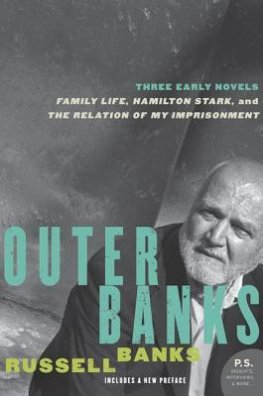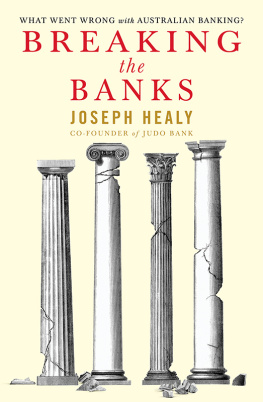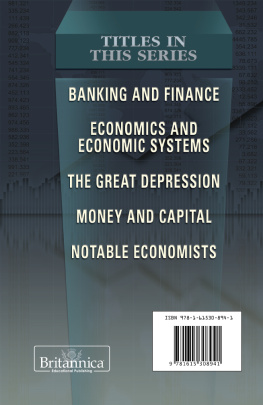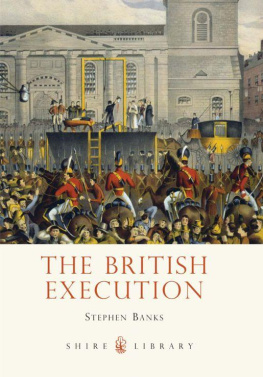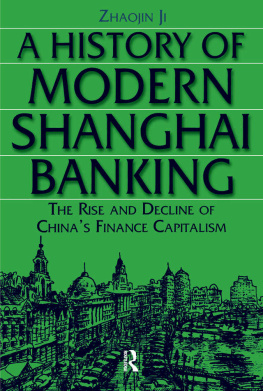PENGUIN BOOKS
THE DEATH OF GENTLEMANLY CAPITALISM
For over twenty years, Philip Augar was one of the Citys top brokers. After steering NatWests equities business into a leading position, he built a securities business for Schroders and was a member of the team that negotiated the sale of Schroders investment bank to Citigroup. He has a doctorate in History, is a Visiting Fellow at Cranfield School of Management and can be contacted through his website, www.philipaugar.com.
PHILIP AUGAR
THE DEATH OF GENTLEMANLY CAPITALISM
The Rise and Fall of Londons Investment Banks

PENGUIN BOOKS
PENGUIN BOOKS
Published by the Penguin Group
Penguin Books Ltd, 80 Strand, London WC2R 0RL, England
Penguin Putnam Inc., 375 Hudson Street, New York, New York 10014, USA
Penguin Books Australia Ltd, 250 Camberwell Road, Camberwell, Victoria 3124, Australia
Penguin Books Canada Ltd, 10 Alcorn Avenue, Toronto, Ontario, Canada M4V 3B2
Penguin Books India (P) Ltd, 11 Community Centre, Panchsheel Park, New Delhi 110 017, India
Penguin Books (NZ) Ltd, Cnr Rosedale and Airborne Roads, Albany, Auckland, New Zealand
Penguin Books (South Africa) (Pty) Ltd, 24 Sturdee Avenue, Rosebank 2196, South Africa
Penguin Books Ltd, Registered Offices: 80 Strand, London WC2R 0RL, England
www.penguin.com
First published as a Penguin hardback 2000
Published with a new foreword in paperback in Penguin Books 2001
Copyright Philip Augar, 2000, 2001
All rights reserved
The moral right of the author has been asserted
Except in the United States of America, this book is sold subject to the condition that it shall not, by way of trade or otherwise, be lent, re-sold, hired out, or otherwise circulated without the publishers prior consent in any form of binding or cover other than that in which it is published and without a similar condition including this condition being imposed on the subsequent purchaser
ISBN: 978-0-14-196414-0
To Denise, William and Rachel
Contents
List of Tables
Acknowledgements
The views contained in this book are entirely my own and are not necessarily shared by the people who have agreed to be interviewed for this project. None the less, many colleagues and competitors have been generous with their time. Some have asked not to be named but I am as grateful to them as to the following contributors: Nicholas Angell, Bernard Asher, David Atkinson, Catherine Black, Keith Brown, Cazenove & Co., John Chiene, David Clementi, Howard Coates, Tony Cole, Scott Dobbie, Kevin Feeny, Tim Ferguson, Mike Geering, Sir Edward George, James Hanbury, Bill Harrison, John Holmes, Philip Kay, Philip Leeder, John Littlewood, Donald Macpherson, Michael Marks, Sir Peter Middleton, Rudolf Mueller, Jim ODonnell, Geoffrey Osmint, Joy Palmer, Quintin Price, Ruth Sack, Richard Sadleir, Hector Sants, Ken Taylor, Martin Taylor, Sir David Walker, Derek Wanless, Nick Whitney, Fiona Worthington and Richard Wyatt.
I am particularly grateful to George Pearson, Professor Richard Taffler and Patrick Wellington who read and commented on draft MSS and to Susan Pollock and Daniel Hind at Penguin Books. Alison Buckley, Deana Plummer and Nancy Smith also made major contributions.
Preface
In the summer of 1978 I was finishing a thesis and collecting rejection letters. A handful of universities had jobs for newly qualified historians but not for me. Eventually I made the shortlist at a small teacher training college in Liverpool but the conversation between candidates as we were shown round made it quite clear that the other five had more experience and better qualifications. I left still without a job but with the certainty that I had to look outside the academic world to pay my debts and earn a living.
A friend in a similar mess told me that they do research in the city and that I should try there. It took me a while to learn where the City was: not the centre of Cambridge, as I first thought, but a part of London where the great bankers and brokers worked. I found a list of firms who were hiring graduates, chose two with nice sounding names and wrote to them.
Quite soon they both replied. A miracle! Two interviews on successive days and one with an invitation to lunch. The first was at 2.30 p.m. and I arrived disorientated by the maze of narrow streets, the speed at which people rushed around and the rudeness of passers-by too busy to stop to give directions. I need not have worried. I sat on a comfortable sofa reading horsey, country magazines for half an hour. Just before 3.00, a chap ambled in, clearly having enjoyed a good lunch, and asked me a few introductory questions: school (grammar), university (Cambridge), contacts in the City (none), sports played (lots). I was on the alert: this was just to wrong-foot me and there would be a tough question on the economy any minute. But no, the next comment was, Well you seem like a decent type, well offer you a job. The time was 3.20 p.m.; I had been with him less than half an hour, and I left elated at my performance, one that had been so brilliant that I had landed a job within minutes.
On the train home doubts set in: he seemed drunk; would he remember the offer in the morning? Even if he did remember, did I really want to work for people who took decisions on the hoof, were late for meetings, drank heavily at lunch, kept no records, and thought their guests would enjoy reading about hunting, fishing and shooting?
The next day I was back in the City to meet the second firm. There was a bit more structure to this interview: relevant questions were asked, the different functions in the firm were explained to me and I met someone called the administrative partner who talked about serious sounding things like pensions and season ticket loans. They took me to lunch (quite the best restaurant Id ever been in) and effortlessly balanced a serious discussion with equally serious eating and drinking. My own contribution was handicapped by unfamiliarity with smart restaurants, the subjects under discussion and the tool Id been given to eat my lobster with but, surprisingly, I was offered a job. It still seemed impossibly easy after the depressing trek through the lower reaches of academe and I did not really believe that either firm had the basis for making a decision about me. But the second firm, Fielding Newson Smith, seemed marginally more thorough and I started work there in September 1978 as a trainee investment analyst for a salary of 100 per week.
I spent most of the next twenty years in the City in an apparently successful career. I became a well-known investment analyst, writing reports on shares and recommending them to investors. I won several public awards for outstanding work and eventually became head of research at one of Londons leading broking firms. I became managing director of the whole firm, responsible for a worldwide staff of 2000. I was then head-hunted and ended up in the inner sanctum of one of Londons leading merchant banks. My annual earnings often exceeded 1 million and sometimes 2 million. A newspaper once described my reputation in the City as awesome.
Yet throughout this I have carried a sense of unease. Could this fame and fortune be for real? How did we all earn so much when the firms we worked for generally lost money? How is it that greed, disloyalty and deception are tolerated and usually rewarded with even more money? When every large investment bank in London was sold to a foreign owner within fifteen years, usually under distressed circumstances, did the managers of those firms really do a good job? If not, why did they keep getting paid so much? Why are the Americans so much more successful at this business than the Brits? Is it a matter of work ethic, experience, native talent or were there structural forces at work?


